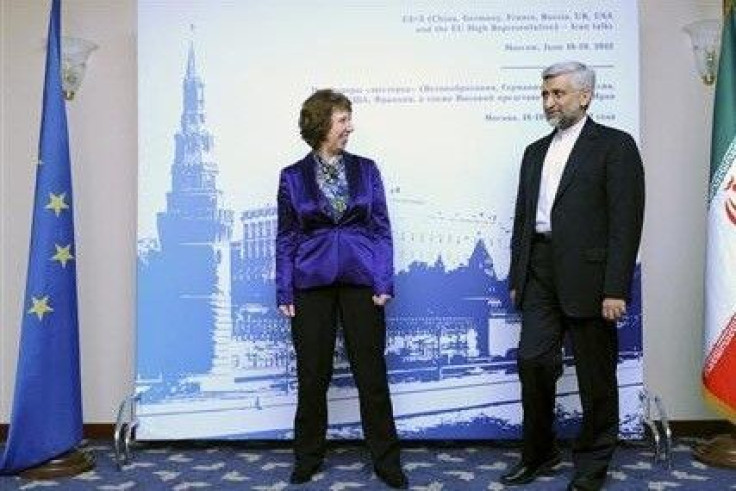'Let Us Enrich ... Or Else': Iran Gives World Powers Ultimatum At Moscow Nuclear Talks

Nuclear talks between Iran and six world powers have stalled, with Iranian negotiators saying Tuesday was the last day for a decision by the P5+1 group over their proposals.
On the second and final day of negotiations in Moscow, diplomats said there was still no agreement between the six countries U.S., Russia, China, Germany, France and Britain and Iran over its alleged nuclear weapons program.
The negotiations are a continuation of talks held in Istanbul on April 14 and Baghdad on May 23 and 24.
Both sides have struggled to find common ground in the protracted talks, as sanctions and military threats have ratcheted up the prospect of a new Middle East war.
While the six world powers demand that Iran stop enriching uranium at close to weapons-grade levels, Tehran has demanded relief from crippling sanctions such as oil embargoes and being cut off from the Society for Worldwide Interbank Financial Telecommunication international banking payments system.
Crucially, Iran wants acknowledgement that it has the right to enrich uranium.
Today, the [P5+1] group will announce its position about Iran's proposals specifically about Iran's right to enrichment, Ali Baqeri, Iran's deputy chief negotiator told the Mehr news agency.
Today the [P5+1] has the opportunity to announce its final position about Iran's proposals.
Also on Tuesday, Alaeddin Boroujerdi, the head of Iran's National Security and Foreign Policy Committee, told Mehr that enrichment is a red line issue and that Tehran would not forego its legal right.
The talks come as sanctions against Iranian oil exports are due to take effect in the coming weeks, including a European Union ban set for July 1 on insurers indemnifying tankers carrying Iranian crude anywhere in the world.
A collapse in the talks would almost certainly trigger a new spike in oil prices, as markets fear a new war in the Middle East and a blockade of the vital Strait of Hormuz -- through which around 20 percent of the world's oil and 30 percent of all seaborne trade passes -- could usher in a new global recession.
Israel has repeatedly threatened to launch a preemptive strike against nuclear sites inside Iran if talks fail to prevent the Muslim state from acquiring a nuclear weapon.
The so called P5+1 group, made up of the five permanent members of the U.N. Security Council plus Germany, insist Iran is deliberately misleading inspectors over its uranium enrichment program.
Tehran insists its nuclear program is for civilian use only.
© Copyright IBTimes 2024. All rights reserved.











